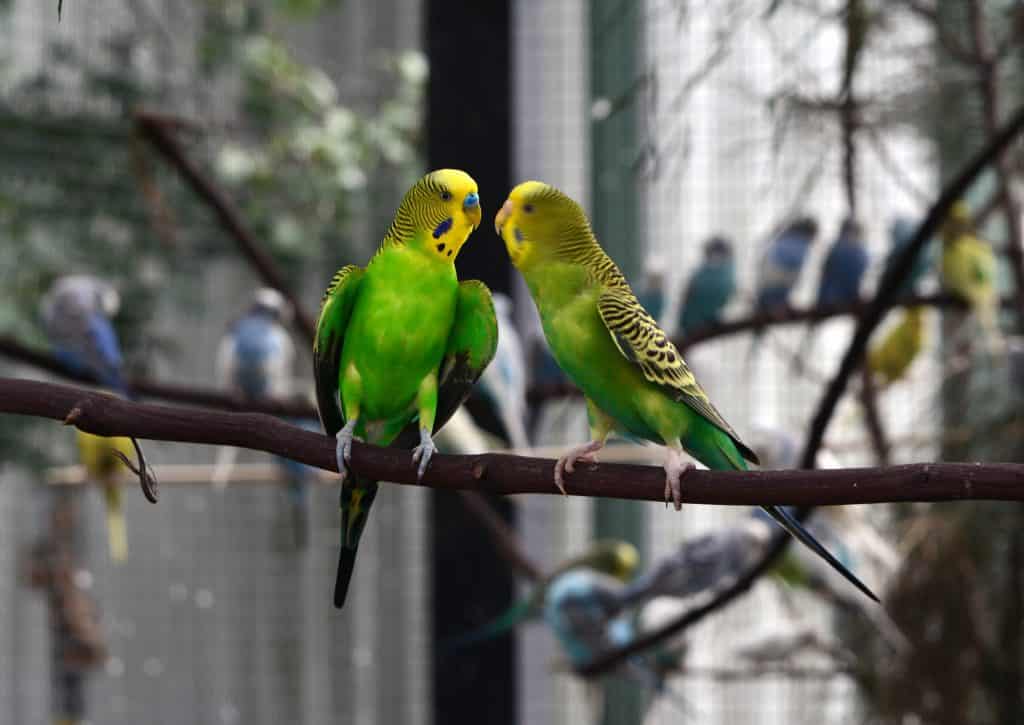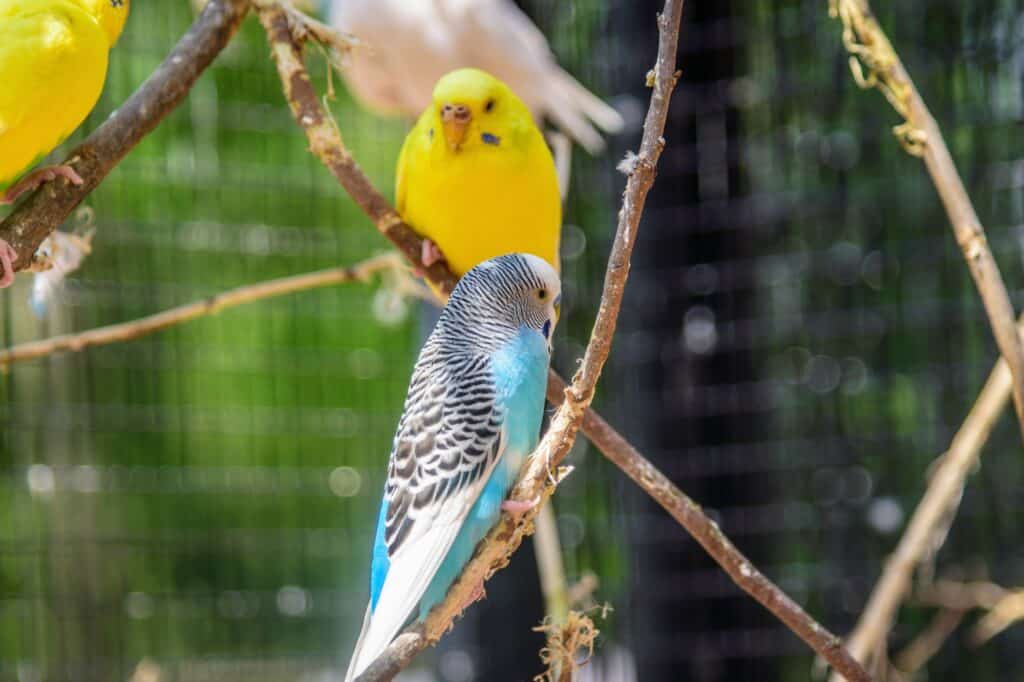why did my parakeet die Suddenly?
Parakeets are sweet, intelligent, and lively companions. They love to sing and play and can learn to speak and to do tricks. The birds, also called budgerigars or budgies (in the United States at least), are lovely family pets because of their sweet and playful personalities.
Budgies can live for up to 20 years, but sometimes it seems that some of them die very suddenly and without explanation. So, I wondered do parakeets die easily? And if so, what kills a parakeet that seems to be in good health?
I researched health conditions that might cause sudden death in parakeets and this article sums up the information I learned.
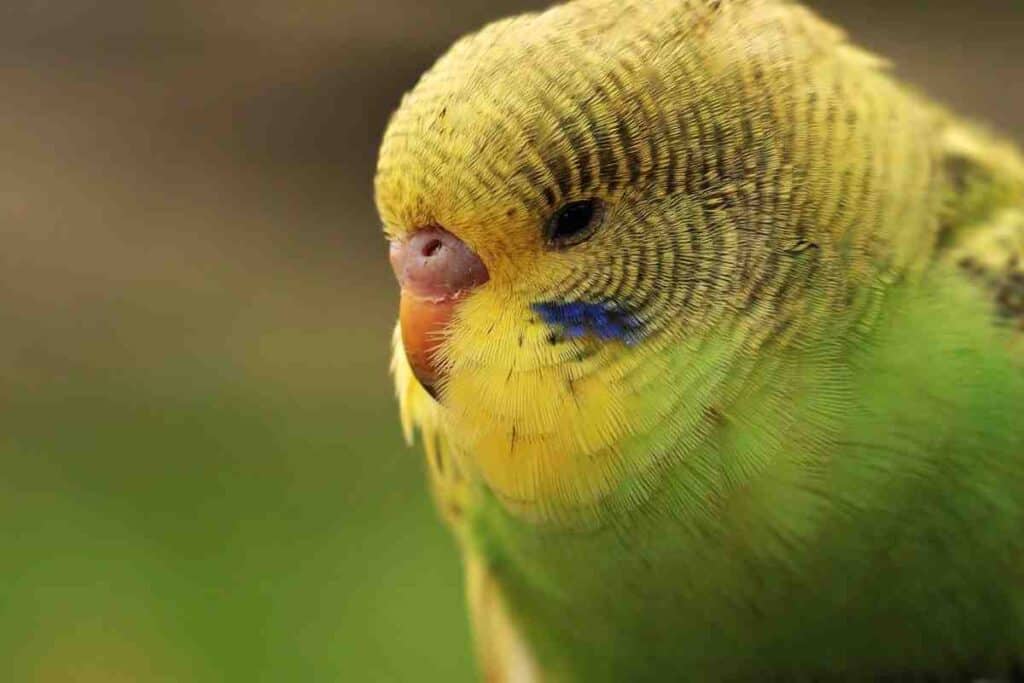
Why Do Parakeets Die Suddenly?
Parakeets can die prematurely from being poisoned by foods and fumes that are toxic to them (but not necessarily to humans). Improper diets, physical injuries and common bird diseases may also cause sudden death. There are some symptoms to alert you to the bird’s sickness, but none surface more often than not.
There’s not much more awful for a pet owner than having a dying budgie, but learning what when wrong is the best way to make sure you have better luck in the future. From direct sunlight, to predators, to pest infestation, here’s what you need to know about what can make a parakeet suddenly die.
What A Parakeet Can and Cannot Eat
There are some reasons why parakeets die randomly that are the owners ‘ doing. Overfeeding the bird human food is one. Parakeets have delicate digestive systems.
They should be fed a high-quality seed mix that is specifically for that species of bird and should always have fresh water. Small pieces of raw fruits and vegetables can be given to them but sparingly.
Too much can spike their blood sugar, so don’t give them too much or leave the pieces in their cage. Bread and crackers should be given in small amounts and every once in a while, too.
As with many animals, there are human foods that are safe for your pet parakeet to eat and some that are toxic to them. Some foods that should never be fed to your bird are:
- Caffeine
- Chocolate
- Fruit pits
- Avocado
- Onions
- Garlic
- Apple seeds
Some human foods that are non-toxic but still unhealthy to parakeets are dairy products, mushrooms, and tomatoes.
Home Products That Are Toxic To Your Parakeet
Your parakeet’s sudden sickness or death can be signs that there are fumes in the house that are toxic to both of you. Some examples of this are gas leaks, carbon monoxide, and lead.
There are also fumes that are toxic only to your bird. Keep your parakeet away from rooms with these household products:
- Plug-in air fresheners
- Incense
- Scented candles that are not made with soy wax.
- Aerosol cleaners
- Fresh polyurethane
- Lead paint (old homes can possibly have older layers of this under new paint)
- Lily flowers
- Oil-based paintings
Teflon and nonstick cookware is coated with polytetrafluoroethylene (PTFE). When burned or overheated, PTFE fumes can be released into the air and can be fatal to your parakeet.
You can discontinue using the listed products as a way to keep from accidentally poisoning your pet bird. There are thousands of home remedies that can substitute for any of them and will be healthier for your parakeet and for you!
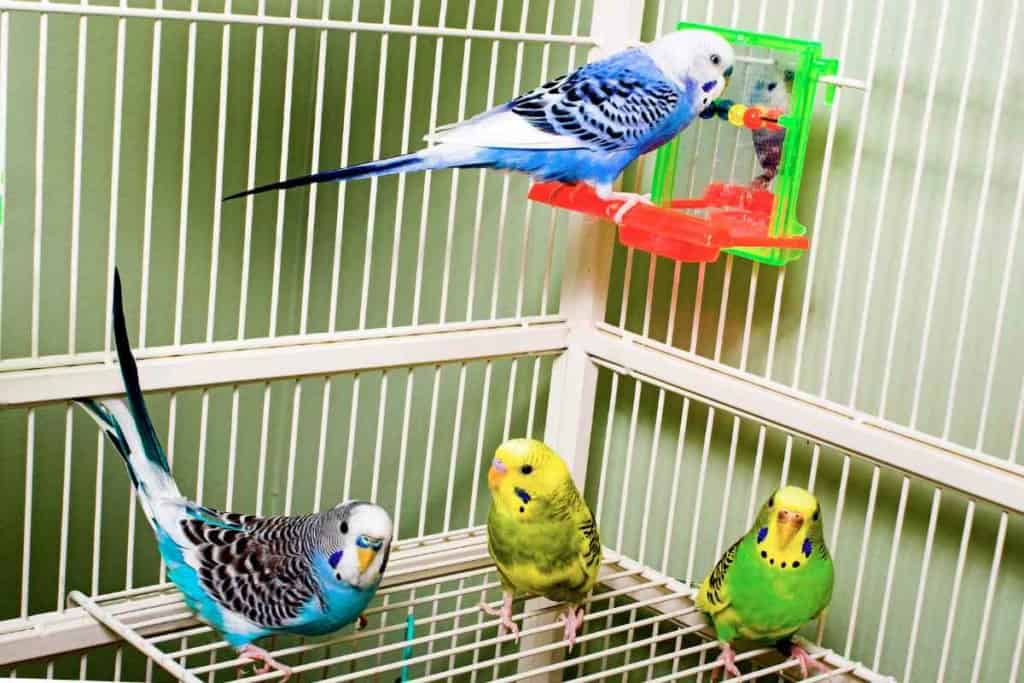
Parakeet Death by Night Frights
Parakeets generally sleep at night, like most humans, and nap during the day (like lucky humans). They like to sleep in the dark, which is why they like an enclosed parakeet bed. However, they can’t see well in the dark, so they are prone to night frights. If your parakeet likes to be held, only pick it up when it’s awake, in the daylight.
Your parakeet can suffer from a night fright when they are jolted awake by a loud noise or by a sudden movement (like a strong wind knocking a light object to the floor) in their cage or the room they are in.
That will cause them to fly hysterically around their cage, possibly crashing into it and maiming themselves. Sometimes the action can be fatal.
If you own more than one pet bird, a frenzy can occur between them all due to the one bird’s reaction.
Some ways to prevent a parakeet’s night fright are to have a night light on near their cage. Covering their cage can block out bothersome noises and keep your bird from seeing anything that might scare them.
If your parakeet does have a night fright incident, immediately turn on the lights in the room so they can see well. Stay calm and do what you can to soothe the bird.
Play soft music and talk gently to your parakeet to lull it. Assess quickly if there are any physical injuries to tend to and call your vet if there are.
Common Bird Diseases
Bird diseases are a common reason why parakeets die suddenly or at least seem to. Often, there are little to no symptoms, or the symptoms are missed.
Parakeet owners who get their beloved parakeet from somewhere with lots of pet birds housed together, such as Petsmart or Pet Supermarket, may find their bird arrives having had an improper diet, a respiratory infection, heat exposure, etc.
While it seems that the parakeet dies suddenly, in reality it may not have seen an avian veterinarian or had a healthy diet in some time.
There is an extensive list of avian diseases. The ones mentioned in this article are ones I found in multiple blogs during my research.
Parrot Fever
Psittacosis, or “parrot fever” is an infection caused by the bacteria chlamydia psittaci. It is most common in tropical areas as well as places heavily populated with caged birds.
The infection is of a few that can be passed to humans. It is spread bird to bird through airborne fecal and urinal particles. Humans can contract it by handling infected birds or through oral touch (when birds kiss your nose or mouth).
Symptoms of parrot fever are diarrhea, discharge from the eyes and nostrils, discolored excretion, weight loss, and lethargy. The infection is treated with antibiotics and prevented by keeping your birds’ cages clean and far enough from each other that their excretions can’t reach each other.
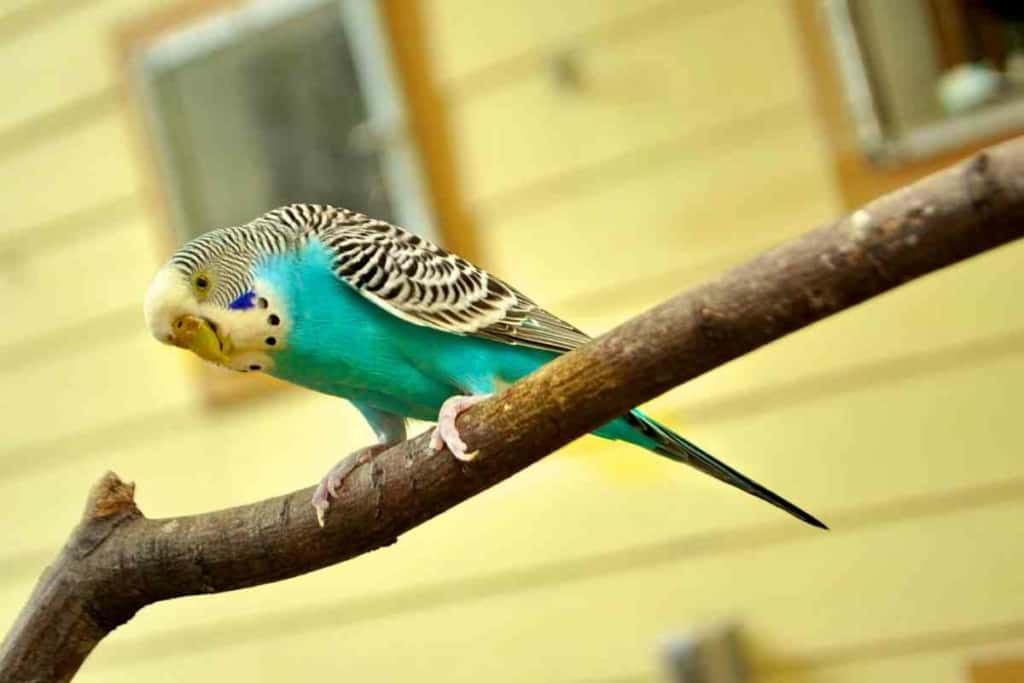
Proventricular Dilatation Disease
This disease affects the nerves in the bird’s gastrointestinal tract, specifically the proventriculus or true stomach. Sometimes, it can affect other organs like the brain.
Also known as “Macaw’s Wasting Disease,” PDD inflames the nerves by infiltrating some of the white blood cells. It is linked to avian bornavirus. Physical symptoms of this will look like:
- Lack of appetite
- Vomiting
- Passing undigested seeds in stool
- Weight loss
Neurological signs are:
- Depression
- Weakness
- Ataxia (loss of control over body movements)
- Head tremors
- Seizures (which are rare instances)
This is transmitted by fecal, oral, or airborne contamination. Birds with PDD should be separated from healthy ones. There is no treatment for this affliction.
Aspergillosis
Aspergillosis is a respiratory tract infection caused by fungus aspergillus. There is an acute type and a chronic type of this infection.
The chronic one has no symptoms, but the acute version might display ass sudden labored breathing, restlessness, abnormal thirst, and urination.
Causes of the fungus are dirty food and water feeders, malnutrition, a wet cage floor, and moist surroundings. Antifungal medication is the prescribed treatment for Aspergillosis.
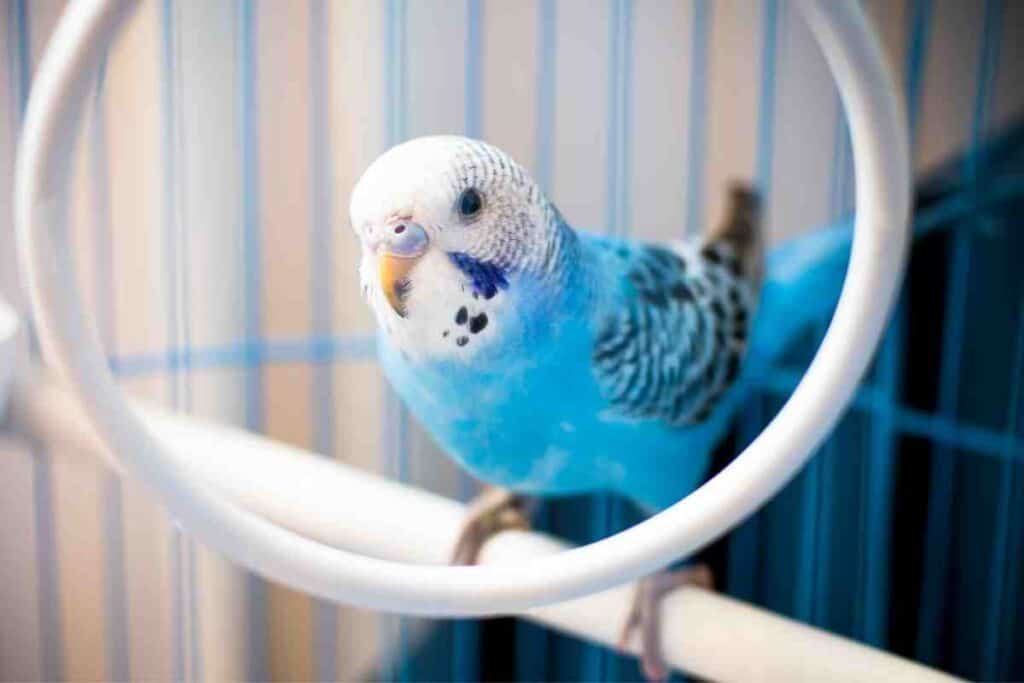
Pulmonary Sarcocystosis
This protozoal infection creates cysts in birds’ lungs, muscles, and nervous systems. The protozoa are called Sarcocystis falcatula. Symptoms can be restlessness, vomiting water, a puffed-up body, or no symptoms at all.
It is caused by eating or drinking food and water contaminated with the stool of insects, cockroaches, or rats. Treatment is antiprotozoal medications.
Conclusion: How Can You Tell If A Parakeet Is Dying?
You may have noticed that many of the reasons for a parakeet’s sudden death show hardly any symptoms. Or symptoms that can be ordinary.
That is why observation is so important. One random instance of vomiting may mean that your bird is healthy and just ate something that doesn’t agree with them. If the issue persists, then you know that you have a serious problem on your hands.
Keeping your parakeet healthy and alive for the maximum amount of years takes all the same minimum efforts as keeping yourself that way. Proper nutrition and diet, freshwater, and a clean-living area.
As always, take your parakeet for annual avian vet visits to make sure they are healthy. If any symptoms show for any of the aforementioned diseases, call your vet immediately. Many of these illnesses can be cured. If they can’t pain management treatments can help give your pet bird the best quality of life possible.
Always pay attention to your pet’s behaviors, as well as their eating and drinking habits. Be diligent with keeping their cages, beds, toys, and feeders clean.
Feed them human food minimally. Cover their cages or provide them a night light to prevent night fright incidents.
By feeding your pet parakeet properly and keeping their cages and areas clean, you reduce a lot of the risks of your bird suffering a sudden death.
And you can enjoy all of the amazing things your parakeet has to offer. Singing and learning to converse with you. The happy flitting around their cage and chirping. All of the puzzles and playing that parakeets love to do.
It is not hard to care for a parakeet.
Related Articles Just For You!
If you found this article about Parakeet health helpful, I suggest checking out one of these other articles.
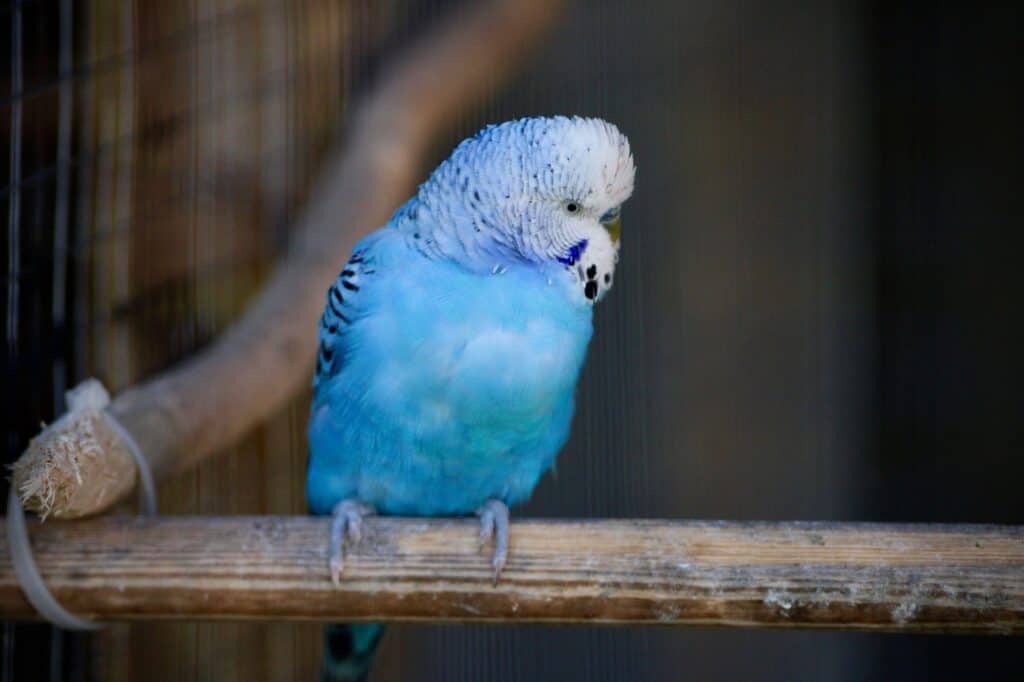
Why Is My Parakeet Breathing Fast?
- Parakeets are lovely companions with a sweet and playful personality. They can sing, play, learn tricks, and speak.
- Parakeets can live up to 20 years, but they sometimes die suddenly due to various reasons such as toxic foods and fumes, improper diets, physical injuries, bird diseases, and night frights.
- Owners should feed their parakeets with a high-quality seed mix designed for the species, fresh water, and small amounts of raw fruits and vegetables. They should avoid overfeeding with human food and foods that are toxic to parakeets, such as caffeine, chocolate, avocado, onions, garlic, apple seeds, dairy products, mushrooms, and tomatoes.
- Toxic fumes from household products such as plug-in air fresheners, incense, scented candles, aerosol cleaners, fresh polyurethane, lead paint, lily flowers, oil-based paintings, and Teflon and nonstick cookware can cause sickness or death to parakeets. Owners can discontinue using these products or substitute them with healthier alternatives.
- Night frights can cause parakeets to fly around their cage and possibly injure or kill themselves. Owners can prevent night frights by having a night light and covering the cage to block out noises that can scare the bird.
- Common bird diseases such as parrot fever, coccidiosis, beak and feather disease, and egg-binding can cause sudden death in parakeets, and their symptoms can be hard to detect. Owners should be aware of these diseases and seek veterinary care if they suspect their parakeet is sick.

